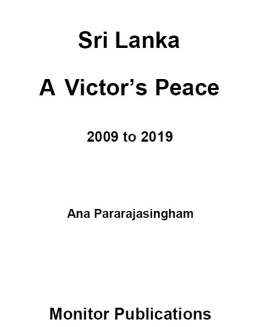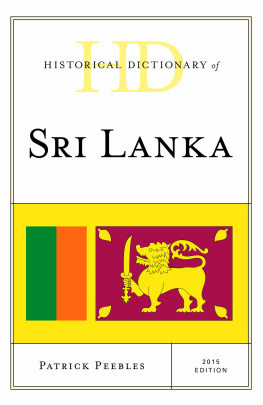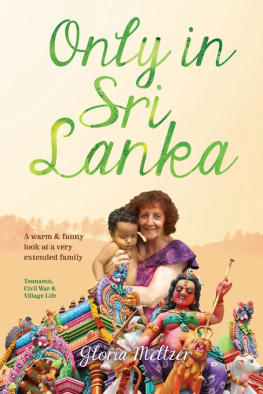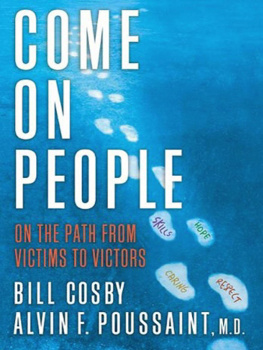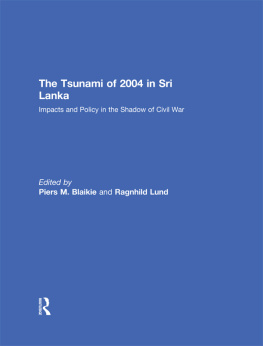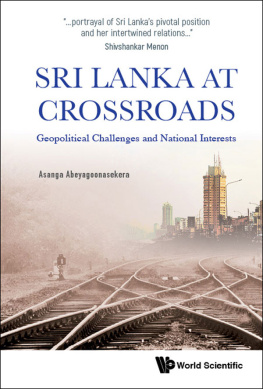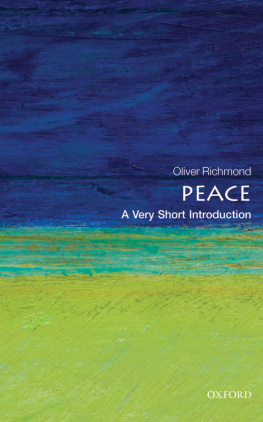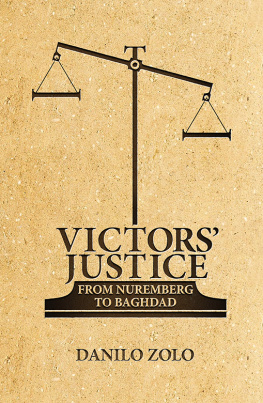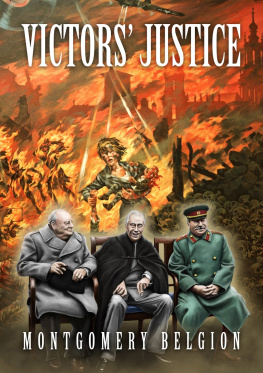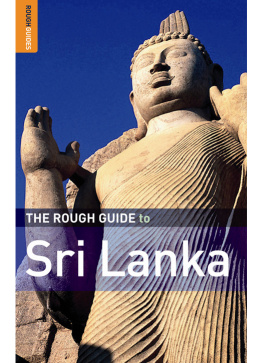Acknowledgements
There are four people I like to specially thank for helping me get this book published.
Kulesegaram Sanchayan for his encouragement to have this collection of articles published as a book and Manjula Sri Pathma for designing a cover that graphically captures the main theme underpinning them. I am indebted to Professor Damien Kingsbury of Australias Deakin University for his foreword identifying the raison dtre for these articles written over a ten year period. I thank Associate Professor Jake Lynch, the Winner of the 2017 Luxembourg Peace Prize and Chair of the Department of Peace and Conflict Studies (DPACS) at the University of Sydney for reviewing and commenting on the original draft.
I am indebted to the International Truth and Justice Project (ITJP) for the research undertaken to bring to light many of the war crimes and crimes against humanity committed during the last phase of Sri Lankas civil war; the ongoing torture of detainees after the war and the Sri Lankan Governments persistent refusal to reveal the fate of those taken into custody. I am equally indebted to the work of the Sri Lanka Campaign, a global non-partisan movement committed to achieving genuine reconciliation based on accountability for violations of international law. I thank these organizations for providing much of the material I have used in writing these articles.
My thanks, not least, to my family, for putting up with me not just for the last ten years but for almost three decades as I took away invaluable family time writing and speaking out about a conflict that had driven over a third of Sri Lankas Tamils out of the island and had so tragically ended in the imposition of a Victors Peace.
Foreword
In 2009, the Sri Lanka armed forces militarily defeated the countrys Liberation Tigers of Tamil Eelam (LTTE), with the deaths of some 40,000 civilians in the final few weeks, mostly in what the government called a no fire zone. This event marked the end of a war that had run, in four phases, since 1983. From the perspective of many, perhaps most Tamils, the war was one about not just creating a new, independent state for Sri Lankas Tamils, but throwing off decades of repression, marginalization and persecution.
The war failed and, as a consequence, the repression, persecution and marginalization has continued apace. Yet the LTTEs struggle and the governments war with it was not just a domestic issue, but involved wider geo-politics and, it might be said, that it was those wider geo-politics that helped bring the war to an end. It is also those wider geo-politics that allow the Sri Lanka government to continue with its policies which, in many respects, have born many of the hallmarks of genocide.
Ana Pararajasingham has long been concerned with the plight of Sri Lankas Tamils, during the war but especially after, when all that was left were words. His articles in a series of outlets have captured many of the complexities and inter-connected issues that have continued to swirl around the Sri Lanka Tamil issue since 2009. These articles are as alive and as relevant now as when they were published.
As the author notes, events in post-war Sri Lanka have been underpinned by three key themes: Colombos triumphalist Victors Peace; the way in which Beijings has pursued its ties with Colombo as part of its own wider geo-political strategy, and New Delhis and Washingtons somewhat belated and beleaguered attempts to return themselves to positions of influence in Colombo.
For China, a strategic hold in Sri Lanka places the island state in a prime position in its global Belt and Road strategy to become the worlds economic superpower, as well as being a key part of its String of Pearls strategy which locates strategic bases across the Indian and Pacific Oceans. Critically, too, after Indias blundered intervention in the Sri Lanka-LTTE war in 1987, China has taken advantage of underlying anti-Indian sentiment and distrust, building a forward base nominally a port at Hambantota, just a short distance from Chinas key regional rival, India.
India has been keenly aware, even alarmed by this shift in regional influence, seeing the regional strategic balance tilted in Chinas geographic favor, and has sought to rekindle positive relations in Colombo. While this may be too little, too late, it has helped create a situation where China and Indian compete with each other for Sri Lankas favors, benefiting the government in Colombo. This has not least been at the expense of the forsaken Tamils who are metaphorically and sometimes literally kicked around as a political football. So, too, the US as a global actor has found itself engaged in Sri Lankas politics, by way of attempting to thwart its growing global rival, Chinas influence.
But most importantly, Ana Pararajasinghams articles show that in defeating the LTTE, successive Sri Lanka governments have not wanted to heal past wounds and repair a deeply damaged polity, but have embarked on a triumphalist Victors Peace at the expense of building unity and equity.
Sri Lankas majority Sinhalese Buddhist population has always had a chauvinist nationalist inflection to its political expression but, in the later years of the war and in its peace, this has metastasised to the point where the countrys minorities are only suffered as unwanted guests.
Though no longer at war, Sri Lankas Tamils continue to live at the countrys social and political margins in lands still, a decade later, under military occupation.
The author has documented these events and issues in his articles, retaining a clear eye for fact where so many have been persuaded by a regrettable, often confrontational, emotion. For anyone wanting to understand post-LTTE war Sri Lanka, these articles offer invaluable insight. For anyone wanting to understand Sri Lankas place in the wider geo-strategic field, and to get a glimpse of how global politics can play out in a corner of the world, these articles are enlightening.
I recommend them to you.
Damien Kingsbury
Personal Chair, Professor of International Politics
Deakin University, Australia

